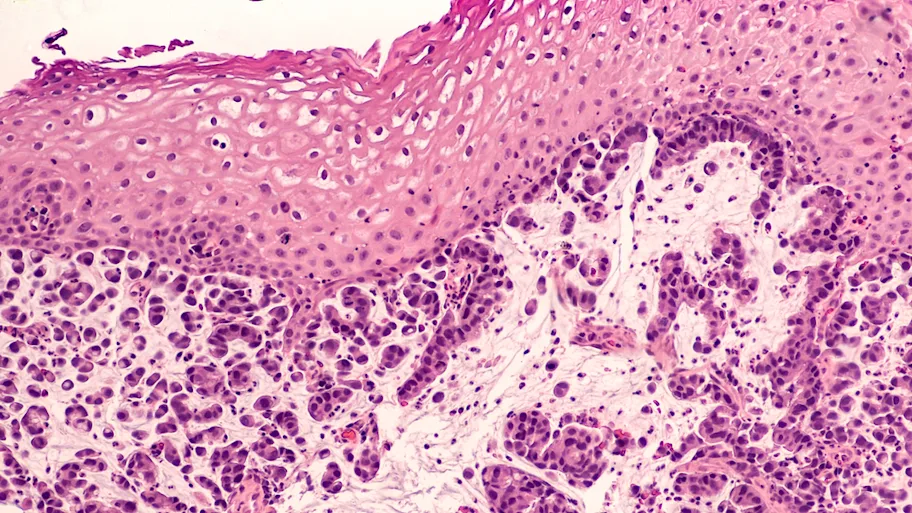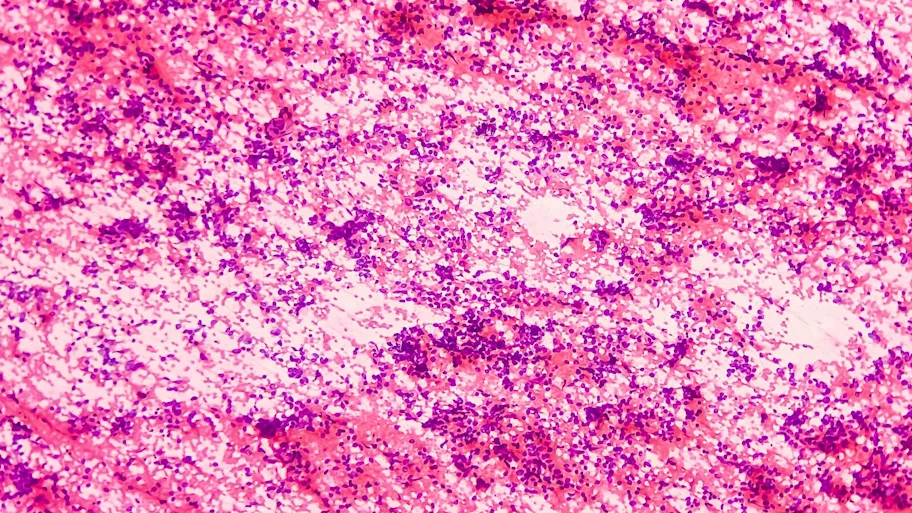
- Science news
- Featured news
- Bacteria injections help the immune system fight cancer
Bacteria injections help the immune system fight cancer

After injection into the blood or tissues, bacteria like Salmonella, Clostridium and Listeria preferentially accumulate within tumors – arresting their growth and spread, and prolonging survival. Image: Shutterstock.
After decades of mouse studies, bacterial immunotherapy looks set for a return to oncology clinics
— by Matthew Prior, Frontiers science writer
Cancers evade destruction by convincing some immune cells to suppress others. But a surprising interlocutor can persuade the suppressors to defect, and the destroyers to redouble.
A review published in Frontiers in Oncology explains how bacteria can rally immune cells to attack tumors, via ancient lines of chemical communication with our immune system. Decoding these molecular signals is key to developing bacteria as a safe, targeted and effective treatment for cancer.
Attenuated Bacteria as Immunotherapeutic Tools for Cancer Treatment► Read original article► Download original article (pdf)
Coley’s toxins
Over a century ago, surgeon William Coley successfully treated a variety of cancers with injections of heat-killed bacteria. Shocked? His contemporaries certainly were. Soon, the rise of radiotherapy and stricter drug safety laws confined “Coley’s toxins” to the laboratory.
But there, scientists continue to test bacteria like Salmonella, Clostridium and Listeria – which replicate inside host cells – on mice bearing tumors from breast, colon, skin and other cancers. After injection into the blood or tissues, these bacteria preferentially accumulate within tumors – arresting their growth and spread, and prolonging survival.
Mouse studies
Now bacterial immunotherapy may soon return to the oncology clinic, says a review of these mouse studies. According to senior author Prof. Basel al-Ramadi of United Arab Emirates University, they show how “bacteria can reprogram the immune response to cancer” via targets in innate immunity. Serviced primarily by ‘myeloid cells’, this is the body’s evolutionarily ancient first line of defense.
Tumors produce signals that compel myeloid cells to suppress the host’s immune cell attack, help feed the cancer through new blood vessels, and even pave its way to spread around the body. But many bacterial components – old familiar signals to the vertebrate innate immune system – reverse this. Myeloid cells are drawn to the bacteria-infected tumor to become its enemies: killers that engulf and digest cancer cells; detectives that present incendiary evidence of the tumor called “antigens” to other immune cells; and disenchanted defenders that stop suppressing immune attack.
Crucially, the bacterially reprogrammed myeloid cells send a chemical call-to-arms to their highly specialized cousins: lymphoid cells. These then recognize infected cancer cells as foreign, applying toxins that force them to self-destruct. Lymphoid cells thus intensify anti-tumor effects, and can even prevent recurrence via long-lived cells that recall the tumor.
Related: Researchers identify cancer killing capability of lesser-known immune cells
Return to the clinic
This immune memory and other potential advantages over chemo- and radiotherapy – like active penetration of tumors – make bacterial immunotherapy a hugely exciting prospect for human cancer treatment. Safe use requires bacteria be modified so that they cannot cause disease, but this has often made them less effective. Knowing which properties of bacteria contribute to anti-tumor immunity is allowing intelligent design of safe new strains – which can also produce antigens, pro-inflammatory proteins, or antibodies that augment tumor killing.
With promising results in early clinical trials, the slow but inexorable advancement back to the clinic continues for Coley’s toxins.
Original article: Attenuated Bacteria as Immunotherapeutic Tools for Cancer Treatment
REPUBLISHING GUIDELINES: Open access and sharing research is part of Frontiers’ mission. Unless otherwise noted, you can republish articles posted in the Frontiers news blog — as long as you include a link back to the original research. Selling the articles is not allowed.






